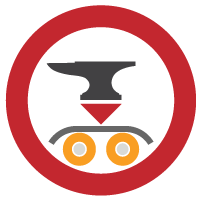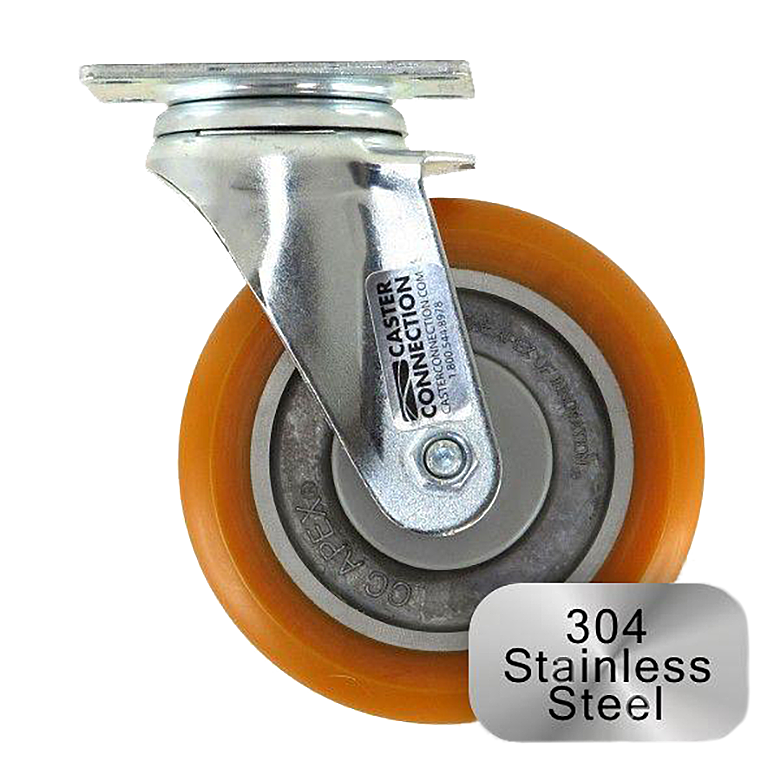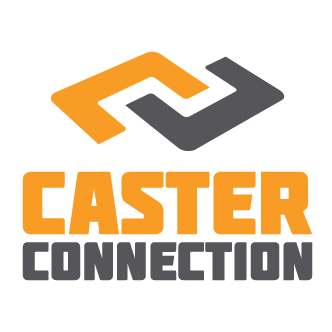The Best Casters for Paper Manufacturing Efficiency and Safety

In the fast-paced world of paper manufacturing, operational efficiency and workplace safety are paramount. From transporting massive rolls of paper to maneuvering heavy machinery, casters play a crucial role in ensuring these operations run smoothly. Choosing the right casters is not just about mobility—it’s about maximizing productivity while safeguarding employees. Here’s how to make the best selection for your paper manufacturing needs.

Tips for Selecting the Right Casters for Paper Manufacturing
Casters play a vital role in keeping your paper manufacturing operations efficient and safe. From supporting heavy loads to protecting floors, selecting the right ones ensures smooth workflows and reduces downtime. Here’s what to look for when choosing casters for your facility.
Load Capacity
The weight of paper rolls, pallets, and equipment in a paper manufacturing facility can be substantial. Ensure that the casters you choose can support the maximum expected load. Overloading casters can lead to premature wear or, worse, catastrophic failure.

Durability
Paper manufacturing environments often involve exposure to moisture, dust, and chemicals. Opt for casters made of durable materials like stainless steel or those with protective coatings to resist corrosion and wear.

Floor Protection
Heavy loads can damage facility floors over time. Casters with polyurethane wheels, like CC Apex, can help minimize wear on flooring while providing smooth, quiet operation.

Ease of Movement
The ability to easily maneuver heavy loads is critical in reducing worker fatigue and maintaining efficiency. Swivel casters or those with precision ball bearings can offer enhanced mobility.

Safety Features
Look for casters with integrated brakes or locks to keep equipment stationary when needed. Shock-absorbing casters can also improve stability and reduce risks associated with shifting loads. For manual push/pull applications, consider purchasing ergonomic casters to reduce the amount of effort required to move equipment. This can play a significant role in reducing risk of injury and maintaining safety protocols.

Specialized Caster Types for Paper Manufacturing
Different tasks in paper manufacturing call for specific caster designs. Whether you’re moving heavy rolls of paper or operating in high-heat areas, the right caster can simplify your work and boost productivity. Let’s break down the types that best suit this industry.

Heavy-Duty Casters
Designed for extreme loads, heavy-duty casters are ideal for transporting large paper rolls and industrial machinery.

High-Temperature Casters
If your operations involve heat, such as in drying processes, choose casters that can withstand high temperatures.

Shock-Absorbing Casters
Shock-absorbing casters are excellent for protecting sensitive equipment from damage due to vibrations or impacts.
Maintenance Tips for Longevity
Regular upkeep keeps your casters working like new and prevents unnecessary wear. A few simple maintenance steps can extend their lifespan and keep your equipment moving and running properly. Here are some tips to help you get the most out of your casters.

1. Inspect Casters Regularly
Check for cracks, wear, or damage on the wheels, frames, and mounting hardware. Address any issues immediately to prevent equipment failure.
2. Keep Moving Parts Clean
Remove debris and dirt from wheels and bearings to ensure smooth operation and prevent unnecessary strain on the casters.
3. Lubricate Bearings and Axles
Apply grease or lubricant to bearings and axles at regular intervals to maintain easy movement and reduce friction. Caster Connection also offers CC Peak, a self-lubricating maintenance-free rig for those looking to skip this step.
4. Monitor Load Distribution
Avoid overloading casters or unevenly distributing weight, as this can cause premature wear and increase the risk of failure.
5. Replace Worn Components Promptly
Swap out worn wheels, bearings, or mounts before they compromise safety or performance. Keeping spare parts on hand ensures quick fixes.
6. Tighten Mounting Hardware
Regularly check bolts and fasteners to ensure casters remain securely attached to equipment. Loose components can lead to instability and accidents.
7. Rotate Casters on High-Use Equipment
For equipment that experiences heavy use, consider rotating casters periodically to even out wear and extend their lifespan.
8. Choose the Right Wheels for Your Surface
If you notice floor damage or excessive wear, reconsider your wheel material. Soft wheels work better for delicate floors, while harder wheels excel on rough surfaces.
9. Document Maintenance Routines
Maintain a log of inspections and maintenance activities to track wear patterns and ensure consistent upkeep.
Making the Right Caster Choice for Your Facility
Selecting the right casters for your paper manufacturing facility is a small but significant decision that can impact overall efficiency and safety. By considering load capacity, durability, floor protection, ease of movement, and safety features, you can equip your facility with casters that meet the demands of this dynamic industry.

Work With a Trusted Supplier
Ready to equip your facility with the best casters for efficiency and safety? At Caster Connection, we offer a wide range of high-quality casters designed for demanding industries like paper manufacturing. Whether you need heavy-duty, shock-absorbing, or specialized high-temperature casters, we have the solutions to meet your needs.
Visit Caster Connection today to explore our products and get expert advice on selecting the right casters for your operation.
